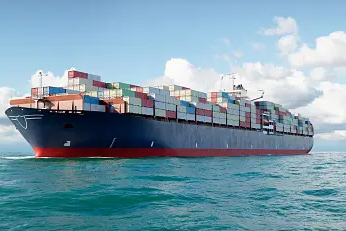Comparison and Personal Insights on International Shipping: Air vs. Sea
With the acceleration of globalization, international logistics play an increasingly important role in both business and personal life. When choosing a transportation method, air freight and sea freight are the two main options. This article will compare these methods in detail and share some personal insights to help you make an informed decision.
Key Differences Between Air and Sea Freight
- Transport Means: Air freight uses airplanes, while sea freight uses ships. This leads to significant differences in speed and capacity.
- Delivery Time: Air freight's advantage is speed, often delivering within days, making it ideal for time-sensitive goods. Sea freight, on the other hand, can take weeks or even months, suitable for non-urgent shipments.
- Cost: Air freight is significantly more expensive due to high fuel and airport fees, often used for high-value, small-volume goods. Sea freight is cheaper, ideal for bulk cargo.
- Inspection Process: Air freight inspections are simpler and faster, whereas sea freight inspections are more complex and time-consuming.
- Customs Clearance: Air freight has faster customs clearance, while sea freight involves a more prolonged and complicated process.
Advantages, Disadvantages, and Considerations for Air Freight
Advantages:
- Speed: The fastest mode of transport, suitable for urgent deliveries.
- Safety: Lower risk of damage or loss due to modern airport facilities.
Disadvantages:
- High Cost: Especially over long distances, the cost can be prohibitive.
- Restrictions: Certain items, such as liquids and flammable materials, cannot be shipped by air.
Considerations:
- Appropriate Scenarios: Best for small packages and urgent documents.
- Advance Booking: Ensure cargo details and book space in advance.
- Packaging Requirements: Follow airline regulations for safe packaging.
Advantages, Disadvantages, and Considerations for Sea Freight
Advantages:
- Cost-Effective: Lower cost, suitable for bulk shipments.
- High Capacity: Ships can carry large volumes of cargo.
Disadvantages:
- Slow Speed: Not suitable for time-sensitive goods.
- Higher Risk: Prone to weather conditions and piracy.
Considerations:
- Partner Selection: Avoid signing large contracts with small shipping companies; choose reputable freight forwarders.
- Professional Involvement: Ensure professionals handle chartering to secure fair terms and pricing.
- Insurance and Fumigation: Purchase cargo insurance and understand fumigation requirements to avoid delays or returns.
Personal Insights
When choosing a shipping method, consider not only the cost and delivery time but also the nature and urgency of the goods. For high-value, time-sensitive shipments, air freight is the best choice; for large, non-urgent cargo, sea freight is more cost-effective. Additionally, selecting reliable partners and professional services is crucial in logistics management. Reputable freight forwarders and efficient customs services can significantly enhance transportation efficiency and minimize unnecessary hassles.
In conclusion, both air and sea freight have their unique advantages and applicable scenarios. When making a choice, it's essential to consider multiple factors and plan a logistics strategy that ensures safe and timely delivery of goods. As technology advances and logistics networks improve, the efficiency and service quality of international shipping will continue to enhance, providing stronger support for global trade.



 EN
EN
 AR
AR BG
BG HR
HR CS
CS DA
DA NL
NL FI
FI FR
FR DE
DE EL
EL HI
HI IT
IT JA
JA KO
KO NO
NO PL
PL PT
PT RO
RO RU
RU ES
ES SV
SV TL
TL ID
ID LV
LV LT
LT SK
SK SL
SL VI
VI ET
ET HU
HU MT
MT TH
TH TR
TR AF
AF MS
MS GA
GA HY
HY AZ
AZ LA
LA